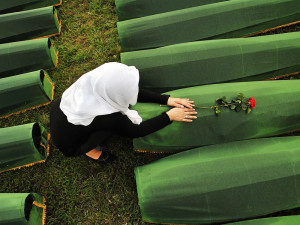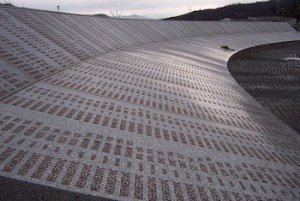 This Thursday, the Mothers of Srebrenica and Zepa Enclaves victims’ group will launch an appeal in The Hague against a 2014 verdict which held the Netherlands responsible for the deaths of about 300 Bosniaks after the fall of Srebrenica.
This Thursday, the Mothers of Srebrenica and Zepa Enclaves victims’ group will launch an appeal in The Hague against a 2014 verdict which held the Netherlands responsible for the deaths of about 300 Bosniaks after the fall of Srebrenica.
The district court in The Hague ruled in July 2014 that Dutch peacekeeping troops had failed to protect 300 Bosniaks after Srebrenica fell to the Bosnian Serb Army on July 11, 1995, and ordered the Netherlands to pay compensation.
But Marco Gerritsen, the lawyer for the Mothers of Srebrenica and Zepa Enclaves association said that the Netherlands should be found guilty of responsibility for the deaths of all the Bosniaks from Srebrenica who were killed after the enclave fell - more than 7,000 men and boys.
After Srebrenica was overrun by Serb forces, thousands of Bosniaks sought refuge in the UN base just outside Srebrenica, at Potocari, where the Dutch peacekeepers were stationed.
However, while the women and young children were transported to a Bosniak-majority area, the Dutch soldiers handed more than 7000 men and boys over to the Bosnian Serb army, telling them that they would be safe. All of them subsequently got killed by the Bosnian Serb army.
The 2014 verdict said that on the night of July 12, 1995 or the morning of July 13, the Dutch authorities “knew or should have known” that there was a possibility that the Bosniaks would be killed, so they were found guilty of the deaths of about 300 people who were handed over from that moment onwards.
But the verdict acquitted the Netherlands of responsibility for the deaths of Bosniaks who had been handed over to Serb policemen and soldiers prior to that.
Gerristen said that during the appeal he would present a document dated July 11, in which the Dutch defence minister said he was afraid for the safety of the Bosniaks.
“Therefore, there is a responsibility of the Netherlands for the death of all Bosniaks whom they handed over,” Gerritsen said.
For Marco Gerritsen, the Dutch authorities were only concerned about the safety of their own soldiers, so “many civilians got killed” thanks to the hurried departure of the Dutch soldiers and the handover of the Bosniaks.
 Today, Radovan Karadzic has filed an appeal to the UN’s Mechanism for International Criminal Tribunals against his conviction by the International Criminal Tribunal for the former Yugoslavia (ICTY) in March this year.
Today, Radovan Karadzic has filed an appeal to the UN’s Mechanism for International Criminal Tribunals against his conviction by the International Criminal Tribunal for the former Yugoslavia (ICTY) in March this year.
 This Thursday, the Mothers of Srebrenica and Zepa Enclaves victims’ group will launch an
This Thursday, the Mothers of Srebrenica and Zepa Enclaves victims’ group will launch an 

